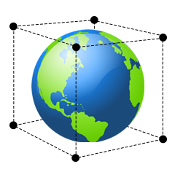For the past several millennia, all societies have developed because they had access to their information, and the knowledge developed therefrom was equipped with sustainability (long-term and continuous access).
With the arrival of the Internet, the situation has changed because digital media is currently rather weak and unstable :
[expand title=”Landmarks”]
1887 Wax cylinder
1930 Punch Card (80 columns)
1937 Microfilm
1950 Hard Drive
1950 Hard Music (78 laps)
1952 Magnetic Tape
1971 Floppy (5 in.)
1978 CD
1995 DVD
2000 Microdrive (music player and camera)
2008 USB Key
2008 Cloud[/expand]
Big Data
Our society’s administrators have placed bets on the belief that our flows of information will last a long time, which is not the case.
With age, tapes decompose, hard disks must be renewed, video discs become unreliable, versions of encoding languages disappear while we develop even more devices to process text, images and sound.
After 2020 (?)
We have begun to search for new solutions :
- In the short term, development of cloud computing with correcting codes.
- In the long term, Japanese researchers are seeking more stable support and have turned to quartz (Kyoto University, Laboratory of Hitachi, etc.)
- Also in the long term, we want to replace the binary system (0 and 1) by DNA genetic code that has four states (ACTG), see European Bioinformatics Institute in England.
For the past several millennia, all societies have developed because they had access to their information, and the knowledge developed therefrom was equipped with sustainability (long-term and continuous access).
With the arrival of the Internet, the situation has changed because digital media is currently rather weak and unstable :
[expand title=”Landmarks”]
1887 Wax cylinder
1930 Punch Card (80 columns)
1937 Microfilm
1950 Hard Drive
1950 Hard Music (78 laps)
1952 Magnetic Tape
1971 Floppy (5 in.)
1978 CD
1995 DVD
2000 Microdrive (music player and camera)
2008 USB Key
2008 Cloud[/expand]
Big Data
Our society’s administrators have placed bets on the belief that our flows of information will last a long time, which is not the case.
With age, tapes decompose, hard disks must be renewed, video discs become unreliable, versions of encoding languages disappear while we develop even more devices to process text, images and sound.
After 2020 (?)
We have begun to search for new solutions :
- In the short term, development of cloud computing with correcting codes.
- In the long term, Japanese researchers are seeking more stable support and have turned to quartz (Kyoto University, Laboratory of Hitachi, etc.)
- Also in the long term, we want to replace the binary system (0 and 1) by DNA genetic code that has four states (ACTG), see European Bioinformatics Institute in England.


Leave A Comment